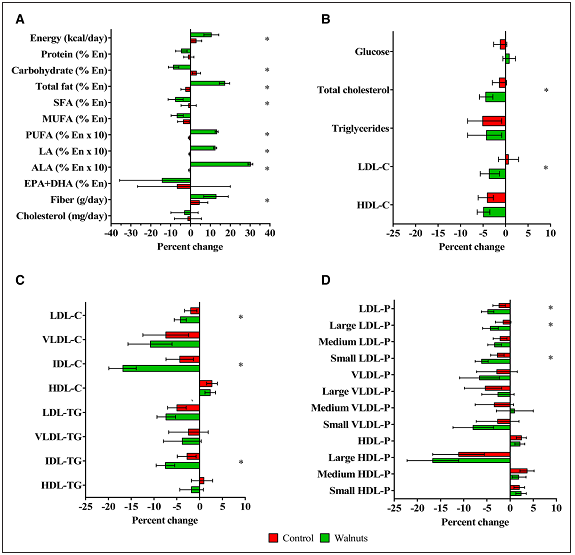Frequent consumption of nuts, an important component of plant-based diets, is associated with a 15% reduction in total cardiovascular disease (CVD) and a 23% reduction in CVD mortality.
Although small studies have shown that supplementing the diet with nuts has a considerable effect on reducing dietary cholesterol in the short term, there is little information concerning the effects of nuts on lipoprotein subclasses.
The team of the WAHA study (Hospital Clínic de Barcelona and Loma Linda University) has published this week in the journal Circulation an article that evidences the benefits of including nuts in the diet in long-term.
700 candidates were assigned to a diet without nuts (control) and a walnut-supplemented diet and monitored for 2 years. The advanced lipoprotein test Liposcale was used to determine lipids and lipoprotein subclasses. In the study, it was evident that candidates on a nut-supplemented diet significantly reduced total cholesterol, LDL-cholesterol and remnant cholesterol (mainly IDL) by 4.4%, 3.6% and 16.8%, respectively. In addition, a significant reduction in the number of total LDL particles and in the number of small LDL particles was observed, demonstrating that walnuts improve the lipoprotein profile by decreasing cardiovascular risk.
Read the full article here.

Tagged Liposcale, Liposcale Test, NMR


